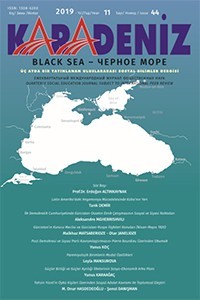ARİSTOTELES, DEVLET, KÖLELER VE VATANDAŞLIK
ARISTOTLE, THE STATE, SLAVERY AND CITIZENSHIP
Author(s): Abdullah KIRANSubject(s): Political Philosophy, Social Philosophy, Ancient Philosphy
Published by: Kültür Ajans Tanıtım ve Organizasyon
Keywords: Aristotle; Slavery; State; Citizenship; Administration;
Summary/Abstract: According to Aristotle the slavery stems from nature and it’s innate; it has not been emerged as a result of social inequality or difference of the status. Aristotle classifies slavery into two different categories as natural and legal slavery. According Aristotle, those who are the slaves by nature can’t be manumitted. While some people are slaves wherever they are, some can’t be slaved at anywhere. It’s is by nature that some are masters and the others to be ruled. Since men differ in their intellectual and physical capacity, it is by nature that some are masters and the others are slaves. Those who are endowed with a high intellectual capacity are eligible to command, but those who are endowed with physical strength are designed to obey and fulfill commands. Since the state has been built on utilitarian ground, the slavery is legitimate and natural. In a state structuring, while the contribution of the slaves comes by their serving and joining the production process, the free citizen’s takes part in the administration duties. According to the Aristotle, the most important conditions of being a citizen are to take duty in the administration of the state and work on behalf of public welfare. Thus Aristotle gives a very privileged statue to citizens of state and doesn’t accept the slaves, workers and farmers, women and artisans right of citizenship.
Journal: Karadeniz Uluslararası Bilimsel Dergi
- Issue Year: 2019
- Issue No: 44
- Page Range: 350-359
- Page Count: 10
- Language: Turkish

